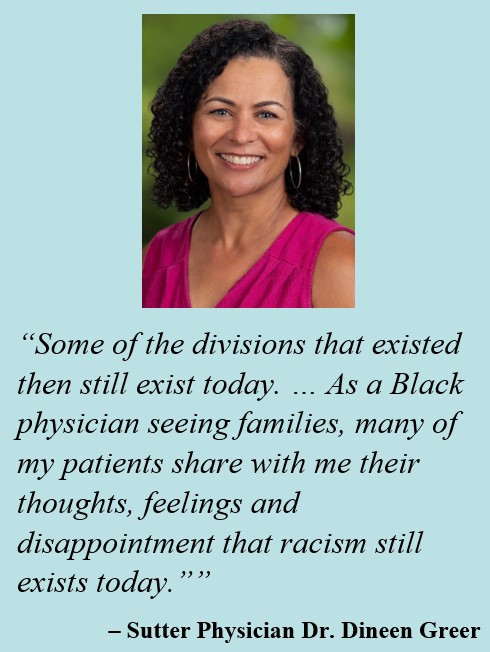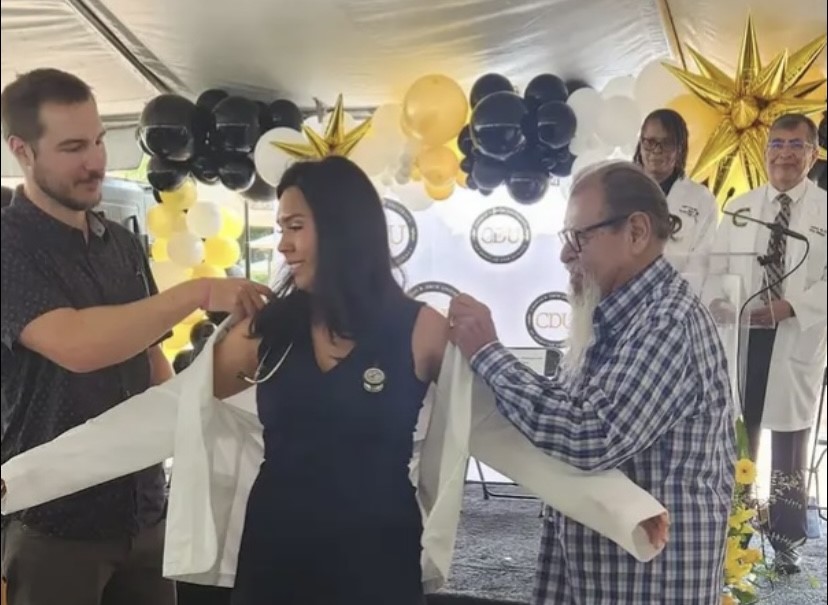Dr. Dineen Greer was raised by a mother who was a Black nurse in the South. It was a time when, she says, there was a “significant hierarchy in healthcare, with doctor high, nurse below, and a Black nurse in the South even lower. She wanted her daughter to be in charge.”
So, Dr. Greer says, she did just that. “My mother’s plan worked, as I did become a family doctor,” she says, “taking care of people from ‘cradle to grave.’ ”
Now she teaches doctors in residency how to do the same. In addition to seeing patients in the hospital and in her medical office, Dr. Greer is the program director of the Sutter Family Medicine Residency Program, which trains more than two-dozen resident physicians in Sacramento, Davis and a rural residency track in Amador County.
“We really take care of a very diverse group of patients that sometimes can’t find the care in other places,” she says. “We take care of a lot of patients with HIV, AIDS, drug addictions, transgender medicine. We do all of that because we know how important it is to really take care of the diverse patient population.”
As America celebrates Black History Month in February, Dr. Greer reflects on the positive changes that have taken place since her childhood, not just in medicine, but also in every aspect of our lives. But she also still sees how far we, as a nation, need to go.

“Some of the divisions that existed then still exist today,” she says. “Many of our communities remain functionally segregated, and entrenched viewpoints divide us even further. As a Black physician seeing families, many of my patients share with me their thoughts, feelings and disappointment that racism still exists today.”
However, she sees hope in the efforts of organizations, including Sutter Health, in taking stands for diversity and inclusion.
These organizations “understand that appreciating differences makes us stronger, and in Sutter’s case it helps us provide the personalized care our patients deserve. I’m also encouraged by Sutter’s Institute for Advancing Health Equity and its mission to identify and address disparities in healthcare.”
She sees Black History Month and Juneteenth, the holiday marking the freedom of slaves in Texas 30 months after the Emancipation Proclamation was signed, as springboards to start conversations and effect real change.
“Acknowledging our past can inspire us to make necessary changes now,” she says. “A year from now … my hope is that we can all look back and be proud of the steps we took to engage others and put our stamp on a better tomorrow.”





